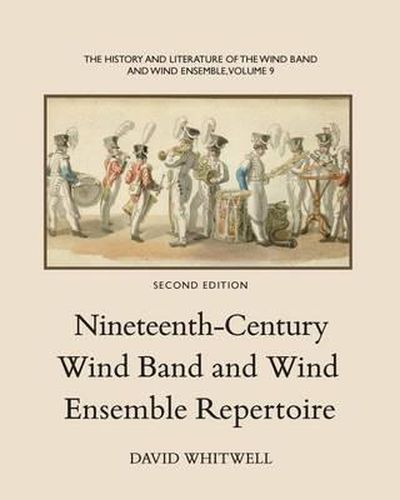Readings Newsletter
Become a Readings Member to make your shopping experience even easier.
Sign in or sign up for free!
You’re not far away from qualifying for FREE standard shipping within Australia
You’ve qualified for FREE standard shipping within Australia
The cart is loading…






Nineteenth-Century Wind Band and Wind Ensemble Repertoire is the ninth volume in Dr. David Whitwell’s ground breaking thirteen-volume History and Literature of the Wind Band and Wind Ensemble series. During the first decades of the nineteenth century one finds continued composition of music for Harmoniemusik. After the end of the Napoleonic Wars there was a new birth of civic bands in Europe and this resulted in numerous original compositions for large concert band. For society at large, however, the nineteenth century was one of enormous interest in all things military, which resulted in a great deal of marches and dance music. One very important exception is a large body of slow, expressive and beautiful original music composed for the church, music which was performed during the church service, including communion, as part of an annual recognition of the military by the clergy. Whitwell’s meticulous scholarship reveals the continuous history of the wind ensemble, from its earliest roots to the nineteenth century - an unbroken tradition of wind music that music scholars have never been fully able to appreciate until now.
$9.00 standard shipping within Australia
FREE standard shipping within Australia for orders over $100.00
Express & International shipping calculated at checkout
Nineteenth-Century Wind Band and Wind Ensemble Repertoire is the ninth volume in Dr. David Whitwell’s ground breaking thirteen-volume History and Literature of the Wind Band and Wind Ensemble series. During the first decades of the nineteenth century one finds continued composition of music for Harmoniemusik. After the end of the Napoleonic Wars there was a new birth of civic bands in Europe and this resulted in numerous original compositions for large concert band. For society at large, however, the nineteenth century was one of enormous interest in all things military, which resulted in a great deal of marches and dance music. One very important exception is a large body of slow, expressive and beautiful original music composed for the church, music which was performed during the church service, including communion, as part of an annual recognition of the military by the clergy. Whitwell’s meticulous scholarship reveals the continuous history of the wind ensemble, from its earliest roots to the nineteenth century - an unbroken tradition of wind music that music scholars have never been fully able to appreciate until now.